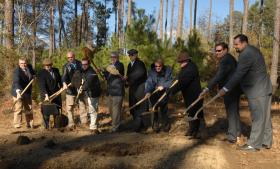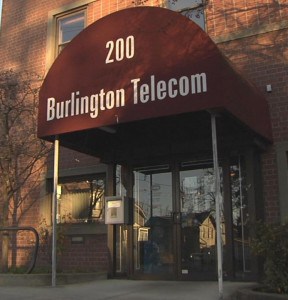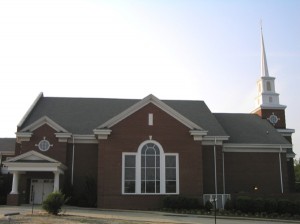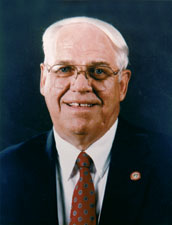 Cable companies are starting to lay the groundwork to support the next generation of HD video — first with 4K, an improvement over today’s HD standard, and eventually 8K Ultra High Definition TV — delivering pictures 16 times better than the current 1080p HD standard and coming close to the level of detail supported by IMAX.
Cable companies are starting to lay the groundwork to support the next generation of HD video — first with 4K, an improvement over today’s HD standard, and eventually 8K Ultra High Definition TV — delivering pictures 16 times better than the current 1080p HD standard and coming close to the level of detail supported by IMAX.
The 8K evolving standard, proposed by Japan’s public broadcaster NHK and dubbed Super Hi-Vision, remains years away, but cable operators are preparing their systems to support 4K UHDTV (3840 x 2160 – 8.3 megapixels) much sooner.
By the time 8K comes into use, most cable operators will rely entirely on a single broadband pipe to deliver video, Internet access and telephone service. To handle that traffic, and the bandwidth UHDTV demands, providers will have to upgrade their systems to support much faster speeds. A single video channel transmitted in 8K UHDTV requires around 360Mbps.
That makes Google’s decision to construct a gigabit broadband network in Kansas City seem less revolutionary and almost evolutionary, considering how quickly bandwidth demand will increase in the next eight years.
 The cable industry is now moving fast to finalize the next version of the DOCSIS standard which supports cable broadband. DOCSIS 3.1 is expected to be introduced Thursday at the Cable-Tec Expo. An initial preview seems to suggest the standard will be backwards-compatible with prior DOCSIS versions — good news for those buying their own cable modems — and will support multi-gigabit speeds, if the cable operator decides to dedicate more of its available bandwidth to broadband.
The cable industry is now moving fast to finalize the next version of the DOCSIS standard which supports cable broadband. DOCSIS 3.1 is expected to be introduced Thursday at the Cable-Tec Expo. An initial preview seems to suggest the standard will be backwards-compatible with prior DOCSIS versions — good news for those buying their own cable modems — and will support multi-gigabit speeds, if the cable operator decides to dedicate more of its available bandwidth to broadband.
An essential goal of the cable industry is to match or beat 1Gbps, currently on offer from several fiber to the home service providers and Google. Some operators want even more — up to 10/2Gbps capacity, as they consider future speed needs.
But engineering advancements and innovation fly in the face of bean counters attempting to monetize broadband usage with usage caps and usage-based billing. The industry’s justification for usage caps becomes even more tenuous as it moves to a single pipeline for all of its services and treats its cable TV package differently from Internet traffic. AT&T and Bell are already doing that today with their U-verse and Fibe platforms. Both claim their TV channels move over a different network than traditional Internet, but as costs for both continue to decline, that is becoming a distinction with little difference.
Google and a handful of independent or community-owned broadband networks are largely the only ones calling out the cable industry’s bogus claims that consumers don’t need super fast broadband, usage caps are necessary, and broadband speed upgrades are difficult and too expensive. These new competitors have correctly predicted the exponential growth in bandwidth demand and are prepared for it, even as the industry continues to dismiss their competitors’ networks as unnecessary overkill.
But cable’s hurry to DOCSIS 3.1 tells a different story.
Jeff Baumgartner from Light Reading Cable observed cable executives at Tuesday’s annual Cable & Telecommunications Association for Marketing (CTAM) conference, where those attending beat the drum for faster and better networks:
[DOCSIS 3.1] will also focus on the quality of cable’s pipe, reduced latency and other smarts designed to help enable a new set of broadband-based services. Cable’s interest in offering 4K HD services, which offer four times the resolution of today’s HD, was an example that was brought up several times during the session.
The cable industry also hopes to shorten the process of creating the specs and having them turn into deployable products. An average generation of DOCSIS has typically taken three to four years.
“We can no longer do that,” said Phil McKinney, the new president and CEO of CableLabs, but didn’t offer a guess on the anticipated cycle for 3.1. “We have to deliver higher and higher performance.”
[…] And 3.1 is also about the almighty dollar as broadband usage continues to climb. Getting costs down “is a key part of Docsis 3.1,” said Cox Communications Inc. EVP and CTO Kevin Hart.
[flv width=”640″ height=”380″]http://www.phillipdampier.com/video/Light Reading NBCU Ultra-HD Demo 10-12.flv[/flv]
Jeff Baumgartner from Light Reading Cable was invited to a demonstration of 8K UHDTV, which will require much faster broadband networks to handle the super high quality video. (3 minutes)


 Subscribe
Subscribe








